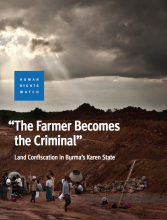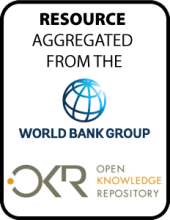Land Library Search
Through our robust search engine, you can search for any item of the over 73,000 highly curated resources in the Land Library.
If you would like to find an overview of what is possible, feel free to peruse the Search Guide.
/ library resources
Showing items 1 through 9 of 16.This article discusses the inherent limitations of law in transitional justice processes regarding land grievances. Through analysis of the case of Timor-Leste (East Timor), a country marked by post-colonialism, post-authoritarianism, and post-conflict.
In Burma, where 70 percent of people earn a living through agriculture, securing land is often equivalent to securing a livelihood.
In the recent past, high profile cases involving land governance problems have been thrust into the public domain. These include the case involving the grabbing of a playground belonging to Lang’ata Road Primary School in Nairobi and the tussle over a 134 acre piece of land in Karen.
Justice interventions in Solomon Islands
over the last decade have focused largely on assisting
Honiarabased state institutions in the form of a variety of
capacity-building programs. This has included a heavy
The conflicting relationship between
peace and justice is frequently debated in the field of
transitional justice. The obligation to prosecute serious
crimes can contradict the measures necessary to reestablish
This paper examines the current status
of justice and dispute-resolution mechanisms in Bangladesh,
ranging from the formal justice system to the traditional
shalish (a form of dispute resolution), and focuses on the
This overview paper positions the
question of benefit sharing in the context of REDD plus. It
shares findings from a cursory review of a sample of
Readiness Preparation Proposals (RPP) for REDD plus
Expert statements indicate that annually
approximately 20 billion dollars will be needed to prevent
90 percent deforestation in tropical countries. Development
practitioners are eager to see the benefits from REDD plus
Despite several attempts at reform,
immovable property rights in Albania are not adequately
secure and represent an important governance challenge.
Problems have resulted from incomplete first title



